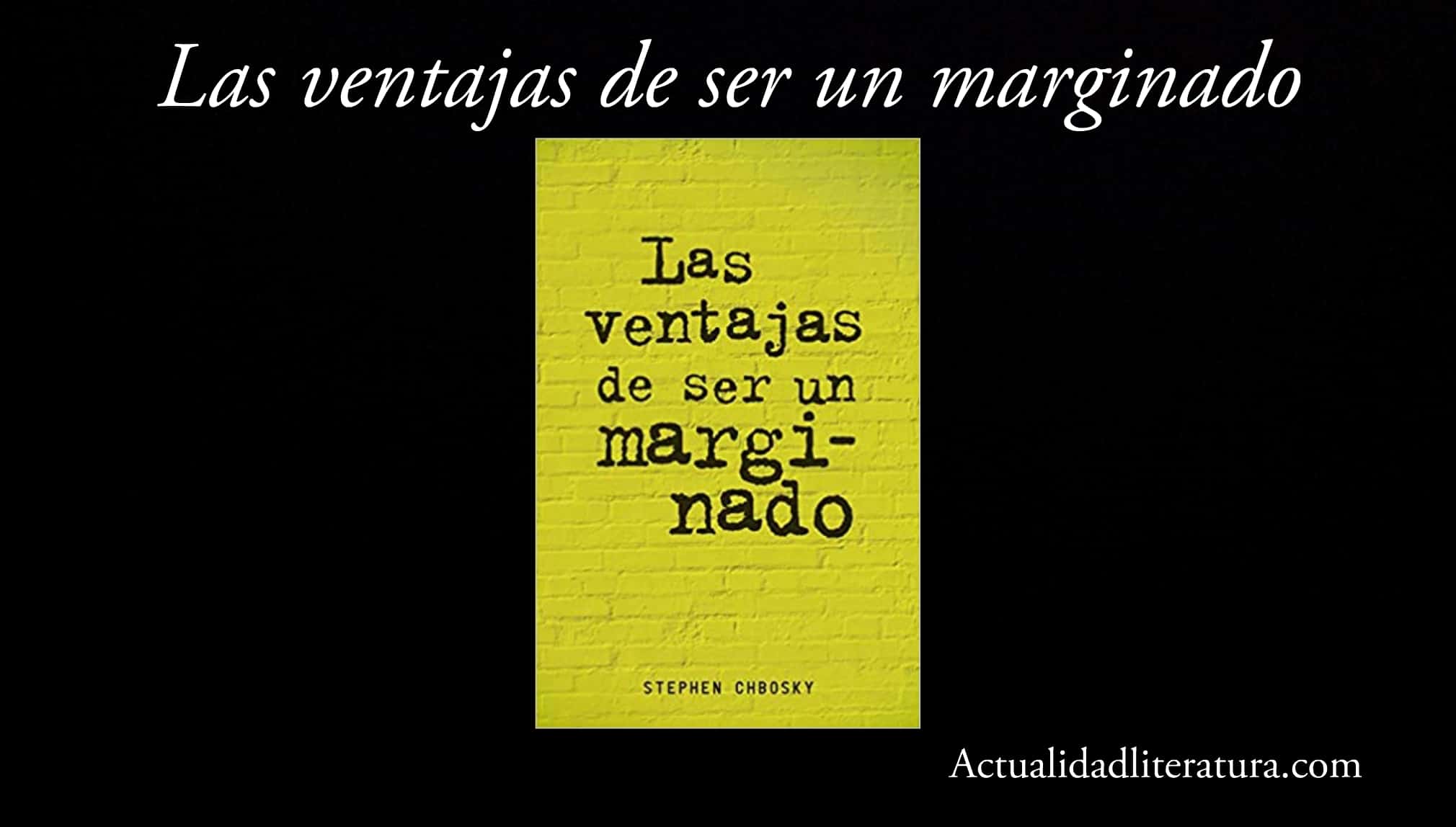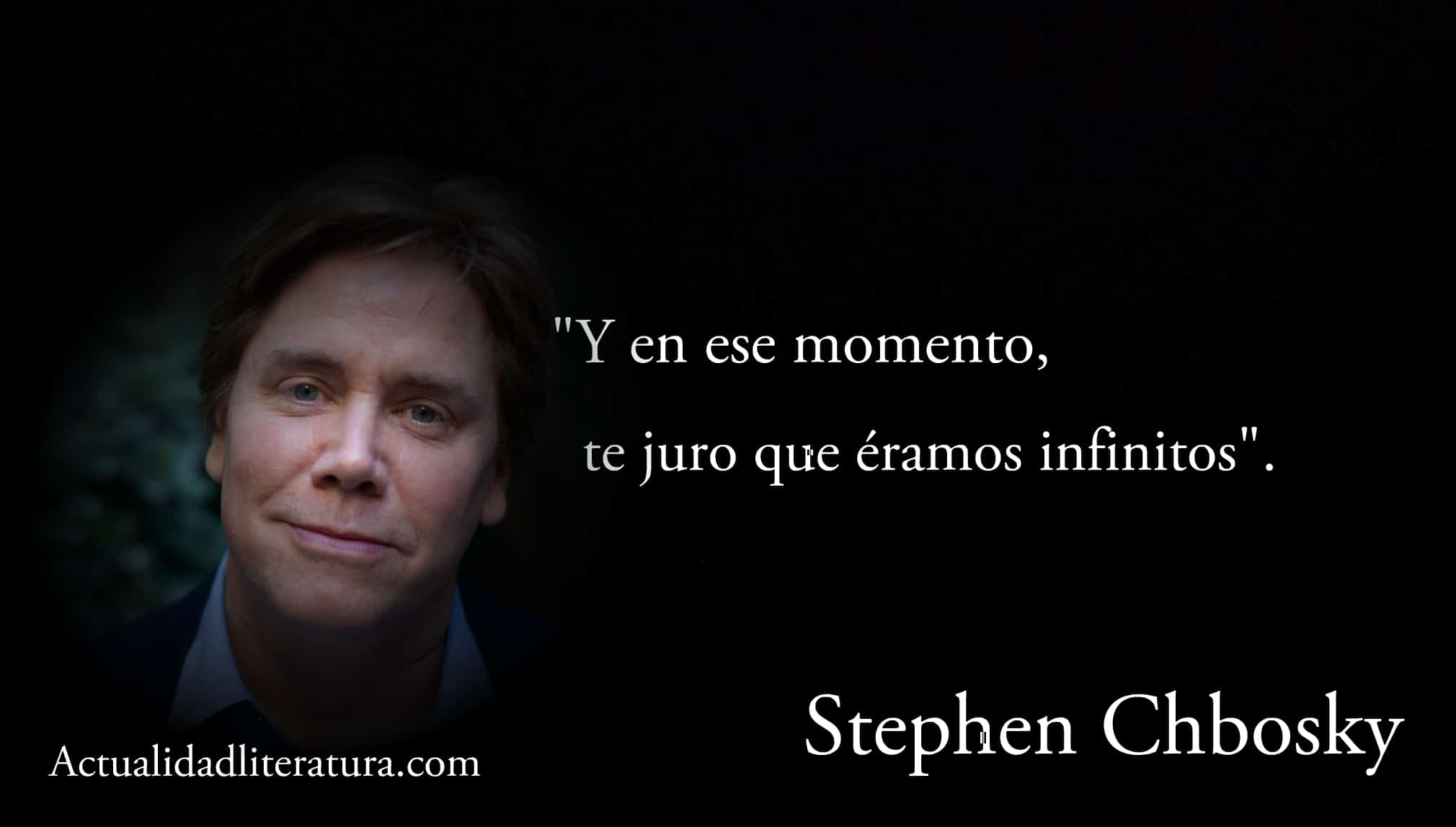
The advantages of being an outcast.
The perks of being a wallflower, original title in English) is an epistolary novel by the writer, American screenwriter and director, Stephen Chbosky. Published in 1999 by MTV Books, it garnered excellent trade numbers. However, the text was banned in several schools due to the author's controversial perspective on adolescent sexuality and drug experimentation.
The work was released to the Spanish-speaking market by the Alfaguara Juvenil publishing house, translated by Vanesa Pérez-Sauquillo. In Spain it appeared under the name «The advantages of being an outcast"; in Latin America it was promoted as «Las ventajas de ser invisible». Also, during the fall of 2012 a homonymous film adaptation was released under the direction of Chbosky himself.
About the Author
Stephen Chbosky was born on January 25, 1970, in Pittsburg, USA His greatest influences include authors such as JD Salinger, F. Scott Fitzgerald and Tennessee Williams. His academic training was completed at the School of Cinematic Arts at the University of Southern California.
Art Works
The perks of being a wallflower (1999) was his first published novel. A year later it became the most widely read on MTV Books. In addition, the appearance of the title in the list of the 10 books with the most claims by the American Library Association, contributed to increase the curiosity of the readers.

Stephen Chbosky.
As well during 2000, Chbosky released Pieces, an anthology of short stories. On the other hand, the pensilvan author has dedicated almost all his written work in the elaboration of scripts for cinema and television, which are shown below:
- The four corners of nowhere (Independent film in which he was also an actor and director; 1995).
- Rent (feature film script; 2002).
- The perks of being a wallflower (script of the feature film released in 2012).
- Jericho (television series; 2006 - 2008).
- brutally normal (television series; 2013).
- La bella y la bestia (feature film script; 2017).
Argument from The advantages of being an outcast
You can buy the book here: The advantages of being an outcast
Charlie, the main character, is a shy, lonely, observant, sensitive and very loyal teenager. His biggest concern is adjusting to the high school environment without the support of his best friend, Michael, who committed suicide a few months before school started. To overcome this loss, the protagonist begins to write letters to a friend.
Thus, the viewer knows firsthand the thoughts and interaction of the boy with the affectionate members of his family. As well as with his first group of friends, some "dislocated" like him (but from the last year). Together with them he will live his first experiences with drugs and will begin to understand issues related to sexuality and adulthood.
Analysis, synopsis and main characters
The
At the beginning of the story Charlie is fifteen years old and he is describing by letter communication - with the reader - what his life is like. His family environment is quite stable and warm (Except for the maternal grandfather with his racist and homophobic comments). The mother is affectionate, even more so she cannot overcome the death of her sister Helen, which occurred on Charlie's seventh birthday.
The father is kind and understanding, although internally he suffers from his wife's grief. Charlie's older brother was a high school football star and is very relevant in the plot because he teaches him to fight. Her sister Candace has a popular and bossy boyfriend (Derek) who gets her pregnant. She decides to have an abortion and Charlie accompanies her to the clinic.
High School and the "Misfits"
During elementary school, Charlie was very close to Michael and his girlfriend, Susan. But after Michael's passing, she grew distant and he became more lonely. Aside from the English teacher, Bill Anderson, Charlie is unable to relate to other people. At least the teacher encourages him to develop his literary vocation, what is more, he assigns him extra essays and lends him his favorite books.
So the days go by until Charlie befriends Patrick and his stepsister Sam, both seniors. He quickly falls in love with her, but doesn't think he has a chance. Anyway, the stepbrothers introduce Charlie to their circle of friends, including Mary Elizabeth, who will become Charlie's first girlfriend.
The vicissitudes of adolescence
Charlie develops a close connection with Samespecially after learning about the abuse she suffered as a child. But she is the girlfriend of Craig, a very handsome and popular college student. On the other hand, Patrick (declared homosexual) maintains a secret courtship with Brad (closet gay), the quarterback of the school team.
At one of his first parties, Charlie collapses after trying LSD and ends up in a hospital. Although his academic performance remains high, his personal life "is a total disaster" ... Charlie is unable to open up to Mary Elizabeth (wants to break up with her). Instead, he shows his feelings in the worst possible way: in the middle of a game of "truth or dare" he decides to kiss Sam.
The confrontation
Charlie — on Patrick's recommendation — temporarily withdraws from the group of friends. Some days after, Brad shows the signs of being hit hard by his father (after catching him kissing Patrick). Later, in the school cafeteria, Brad's classmates assault Patrick. Charlie saves his friend and threatens Brad to tell everyone the truth.
After the cafeteria episode, Charlie is accepted back into the group. By now Mary Elizabeth has found a new boyfriend. Soon after, Sam breaks up with Craig due to his infidelities. Finally, the school year ends and the seniors celebrate. Charlie expresses feeling happy, although internally he is uneasy about the imminent departure of his friends.
Past traumas emerge
Charlie had always had in his friend Michael a clear reference of how he does not want to end (depressed, suicidal). However, when Sam is packing his things for college, she confronts him. It tells you that you cannot put the welfare of others before your own all the time.
At that moment Charlie and Sam kiss… she touches his crotch; he is uncomfortable and tells her that he is not ready to have sex. That night Charlie dreams (remembers) that his aunt Helen caressed him in the same way. When Charlie becomes aware of the sexual abuse suffered during his childhood, he suffers a nervous breakdown.
Life goes on

Quote by Stephen Chbosky.
In one of the letters, Charlie recounts that his parents got him in a catatonic state on the couch at home. Consequently, he is admitted to a psychiatric institution. With the help of the hospital doctors and the support of his relatives, Charlie manages to forgive his aunt. Once he is discharged, he decides to stop writing letters ... It is time to fully immerse himself in his life.
Film adaptation
Las ventajas de ser invisible it has been a highly acclaimed film by critics and the general public. Directed by Stephen Chbosky himself, it featured a cast starring Logan Lerman (Charlie), Emma Watson (Sam) and Ezra Miller (Patrick). According to specialized reviews, the artists mentioned are fully adjusted to the physical and psychological descriptions of the characters.
Other relevant actors were Paul Rudd (Prof. Anderson), Melanie Lynskey (Aunt Helen), Johnny Simmons (Brad), Mae Withman (Mary Elizabeth) and Reece Thompson (Craig). As well as Dylan McDermott, Kate Walsh, Zane Holtz and Nina Dovrev, representing Charlie's parents and siblings, respectively.
Differences between the book and the movie
Being a feature film written and directed by the same author of the novel, the narrative changes were scarce. The most significant difference is the weight of Charlie's family members, which is much higher in the book. The same happens with the role of other secondary characters - such as Bob the marijuana supplier, for example - important to the overall message of the text.